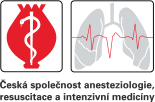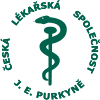Anest. intenziv. Med. 2011;22(4):216-226
Má mírná terapeutická hypotermie stejný vliv na výsledný neurologický stav nemocných po resuscitaci v nemocnici a mimo nemocnici pro defibrilovatelný a nedefibrilovatelný rytmus?Intenzivní medicína - Původní práce
- 1 Klinika anesteziologie, resuscitace a intenzivní medicíny Fakultní nemocnice Olomouc
- 2 Dept. of Anesthesia and Intensive Care, Ringerike Hospital (Vestre Viken HF), Hønefoss, Norway
Cíl studie:
Ověřit vliv terapeutické hypotermie na výsledný neurologický stav nemocných po mimonemocniční a nemocniční kardiopulmonální resuscitaci pro defibrilovatelné a nedefibrilovatelné rytmy.
Typ studie:
Komparativní nerandomizovaná studie.
Typ pracoviště:
JIRP fakultní nemocnice.
Materiál a metoda:
Ve studii byla porovnána skupina nemocných přijatých po kardiopulmonální resuscitaci na JIRP v roce 2010 se skupinou nemocných z roku 2006. Skupiny byly rozděleny do dvou souborů: po mimonemocniční resuscitaci a resuscitaci v nemocnici. Soubory byly dále rozděleny do dvou podsouborů: po resuscitaci pro defibrilovatelný a nedefibrilovatelný rytmus. Pomocí Glasgow outcome scale (GOS) byl srovnán neurologický stav nemocných při propuštění nebo přeložení na ošetřovatelské lůžko.
Výsledky:
Ve srovnání s rokem 2006 došlo v roce 2010 ve všech podsouborech ke zvýšení úmrtnosti a snížení počtu nemocných propuštěných v dobrém neurologickém stavu. V souboru mimonemocniční KPR pro fibrilaci komor (KF) se úmrtnost zvedla o 21 %. S GOS 4-5 bylo v roce 2010 propuštěno o 17 % méně nemocných. V podsouboru resuscitovaných pro asystolii vzrostla úmrtnost o 58 %, s GOS 4-5 jich bylo propuštěno o 11 % méně. Po resuscitaci v nemocnici úmrtnost po defibrilovatelném rytmu vzrostla o 43 % a o 38 % po nedefibrilovatelném rytmu. Podíl nemocných propuštěných s GOS 4-5 klesl o 19 % bez ohledu na vstupní rytmus.
Závěr:
V rozporu s pracemi jiných autorů se nepodařilo prokázat pozitivní vliv terapeutické hypotermie na neurologický stav nemocných po resuscitaci pro defibrilovatelný rytmus. Potvrdilo se, že na neurologický stav nemocných po resuscitaci pro nedefibrilovatelný rytmus nemá vliv nebo jej zhoršuje. Je pravděpodobné, že výsledky ve sledované skupině ovlivnily chyby při provádění terapeutické hypotermie.
Klíčová slova: kardiopulmonální resuscitace; defibrilovatelný rytmus; nedefibrilovatelný rytmus; terapeutická hypotermie; tělesná teplota; neurologický výsledek
Does mild therapeutic hypothermia have the same influence on patients' neurological outcome following in-hospital and out-of-hospital resuscitation due to shockable and non-shockable rhythms?
Objective:
To assess the impact of therapeutic hypothermia on patients' neurological outcome after out-of- and in-hospital cardiopulmonary resuscitation for shockable and non-shockable rhythms.
Design:
A comparative, non-randomized study.
Setting:
A University Hospital ICU.
Methods:
We compared a group of patients admitted to the ICU following cardiopulmonary resuscitation in 2010 to a group of patients admitted in 2006. Both groups were further divided into two subgroups: resuscitated for shockable and non-shockable rhythms respectively. Neurological outcome was assessed on discharge from the ICU or the hospital by the Glasgow Outcome Scale.
Results:
Compared to 2006, mortality increased in the 2010 subgroups and the number of patients with favourable neurological outcome decreased. In the subgroup of patients receiving out-of-hospital CPR due to VF the mortality increased by 21% and 17% fewer patients were discharged with GOS 4-5. In the subgroup of patients receiving CPR due to asystole the mortality increased by 59% and 11% fewer patients were discharged with GOS 4-5. After in-hospital CPR due to shockable and non-shockable rhythms the mortality increased by 43% and 38% respectively. Regardless of rhythm, 19% fewer patients were discharged with GOS 4-5.
Conclusion:
In contrast to studies by other authors we did not find a benefit of therapeutic hypothermia on the neurological outcome of patients after resuscitation for shockable rhythm. It was confirmed that the neurological outcome of patients after resuscitation for non-shockable rhythm was either unchanged or worse in 2010. This effect may have been influenced by mistakes made when performing therapeutic hypothermia.
Keywords: cardiopulmonary resuscitation; shockable rhythm; non-shockable rhythm; herapeutic hypothermia; body temperature; neurological outcome
Vloženo: 18. březen 2011; Přijato: 20. červen 2011; Zveřejněno: 1. srpen 2011 Zobrazit citaci
| ACS | AIP | APA | ASA | Harvard | Chicago | Chicago Notes | IEEE | ISO690 | MLA | NLM | Turabian | Vancouver |
Reference
- Deakin, C. D., Nolan, J. P., Soar, J., Sunde, K., Koster, R. W., Smith, G. B., Perlina, G.D. European Resuscitation Council Guidelines for Resuscitation 2010 Section 4. Adult advanced life support. Resuscitation, 2010, 81, 10, p. 1305-1352. Dostupný také z www: http://www.erc.edu/index.php/doclibrary/en/209/1.
 Přejít k původnímu zdroji...
Přejít k původnímu zdroji...  Přejít na PubMed...
Přejít na PubMed... - Sahuquillo, J., Vilalta, A. Cooling the injured brain: how does moderate hypothermia influence the pathophysiology of traumatic brain injury. Curr. Pharm. Des., 2007, 13, 22, p. 2310-2322.
 Přejít k původnímu zdroji...
Přejít k původnímu zdroji...  Přejít na PubMed...
Přejít na PubMed... - Polderman, K. H., Herold, I. Therapeutic hypothermia and controlled normothermia in the intensive care unit: practical considerations, side effects, and cooling methods. Crit. Care Med., 2009, 37, p. 1101-1120.
 Přejít k původnímu zdroji...
Přejít k původnímu zdroji...  Přejít na PubMed...
Přejít na PubMed... - Tortorici, M. A., Kochanek, P. M., Poloyac, S. M. Effects of hypothermia on drug disposition, metabolism, and response: a focus of hypothermia-mediated alterations on the cytochrome P450 enzyme system. Crit. Care Med., 2007, 35, p. 2196-204.
 Přejít k původnímu zdroji...
Přejít k původnímu zdroji...  Přejít na PubMed...
Přejít na PubMed... - Gál, R., Slezák, M., Zimová, I., Čundrle, I., Ondrášková, H., Seidlová, D. Therapeutic hypothermia after out-of-hospital cardiac arrest with the target temperature 34-35 °C. Bratislava Medical Journal - Bratislavské lékarske listy, 2009, 110, 4, p. 222-225.
- Samson, C., Rogers, M. A., Dahl, J., Kellermann, A. L. Predictors of survival from out-of-hospital cardiac arrest: a systematic review and meta-analysis. Cirk. Cardiovasc. Qual. Outcomes, 2010, 3, 1, p. 63-81.
 Přejít k původnímu zdroji...
Přejít k původnímu zdroji...  Přejít na PubMed...
Přejít na PubMed... - Shinozaki, K., Oda, S., Sadahiro, T. et al. Blood ammonia and lactate levels on hospital arrival as a predictive biomarker in patients with out-of-hospital cardiac arrest. Resuscitation, 2011. Dostupný také z www: http://www.resuscitationjournal.com/article/S0300-9572%2810%2901061-0/fulltext.
- Jennett, B., Bond, M. Assessment of outcome after severe brain damage: A Practical Scale. Lancet, 1975, p. 480-484.
 Přejít k původnímu zdroji...
Přejít k původnímu zdroji...  Přejít na PubMed...
Přejít na PubMed... - Bernard, S., A., Gray, T., W., Buist, M., D. et al. Treatment of Comatose Survivors of Out-of hospital cardiac arrest with induced hypothermia. N. Engl. J. Med., 2002, 346, p. 557-563.
 Přejít k původnímu zdroji...
Přejít k původnímu zdroji...  Přejít na PubMed...
Přejít na PubMed... - Hypothermia after Cardiac Arrest Study Group Mild therapeutic hypothermia to improve the neurologic outcome after cardiac arrest. N. Engl. J. Med., 2002, 346, 8, p. 549-556. Dostupné také z WWW: http://www.nejm.org/doi/full/10.1056/NEJMoa012689#t=articleTop
- Belliard, G., Catez, E., Charron, C. et al. Efficacy of therapeutic hypothermia after out-of-hospital cardiac arrest due to ventricular fibrillation. Resuscitation, 2007, 75, 2, p. 252-259.
 Přejít k původnímu zdroji...
Přejít k původnímu zdroji...  Přejít na PubMed...
Přejít na PubMed... - Arrich, J. Hypothermia After Cardiac Arrest Registry Study Group. Clinical application of mild therapeutic hypothermia after cardiac arrest. Crit. Care Med., 2007, 35, 4, p. 1041-1047.
 Přejít k původnímu zdroji...
Přejít k původnímu zdroji...  Přejít na PubMed...
Přejít na PubMed... - Don, C. W., Longstreth, W. T. Jr, Maynard, C. et al. Active surface cooling protocol to induce mild therapeutic hypothermia after out-of-hospital cardiac arrest: a retrospective before-and-after comparison in a single hospital. Crit. Care Med., 2009, 37, 12, p. 3062-3069.
 Přejít k původnímu zdroji...
Přejít k původnímu zdroji...  Přejít na PubMed...
Přejít na PubMed... - Bernard, S. Hypothermia after cardiac arrest: expanding the therapeutic scope. Crit. Care Med., 2009, 37, 7 Suppl., p. 227-233.
 Přejít k původnímu zdroji...
Přejít k původnímu zdroji...  Přejít na PubMed...
Přejít na PubMed... - Kuboyama, K., Safar P. et al. Delay in cooling negates the beneficial effect of mild resuscitative cerebrál hypothermia after cardiac arrest in dogs: a prospective, randomized study. Crit. Care Med., 1993, 21, 9, p. 1348-1358.
 Přejít k původnímu zdroji...
Přejít k původnímu zdroji...  Přejít na PubMed...
Přejít na PubMed... - Nolan, J. P., Soar J. Mild therapeutic hypothermia after cardiac arrest: Keep on chilling. Crit. Care Med., 2011, 39, 1, p. 206-207.
 Přejít k původnímu zdroji...
Přejít k původnímu zdroji...  Přejít na PubMed...
Přejít na PubMed... - Hoedemaekers, C. W. et al. Comparison of cooling methods to induce and maintain normo- and hypothermia in intensive care unit patients: a prospective intervention study. Crit. Care, 2007, 11, 4, p. R91
 Přejít k původnímu zdroji...
Přejít k původnímu zdroji...  Přejít na PubMed...
Přejít na PubMed... - Nolan, J. P. et al. European Resuscitation Council Guidelines for Resuscitation 2010 Section 1. Executive summary. Resuscitation, 2010, 81, 10, p. 1222. Dostupný také z WWW: http://www.erc.edu/index.php/doclibrary/en/209/1.
 Přejít k původnímu zdroji...
Přejít k původnímu zdroji...  Přejít na PubMed...
Přejít na PubMed... - Valentin, A. et al. Outcome of cardiopulmonary resuscitation in hospitalized patiens. Resuscitation, 1995, 30, p. 217-221.
 Přejít k původnímu zdroji...
Přejít k původnímu zdroji... - Dumas, F., Grimaldi, D., Zuber et al. Is Hypothermia After Cardiac Arrest Effective in Both Shockable and Nonshockable Patients? Insights From a Large Registry. Circulation, 2011, 123, 8, p. 877-886.
 Přejít k původnímu zdroji...
Přejít k původnímu zdroji...  Přejít na PubMed...
Přejít na PubMed...





